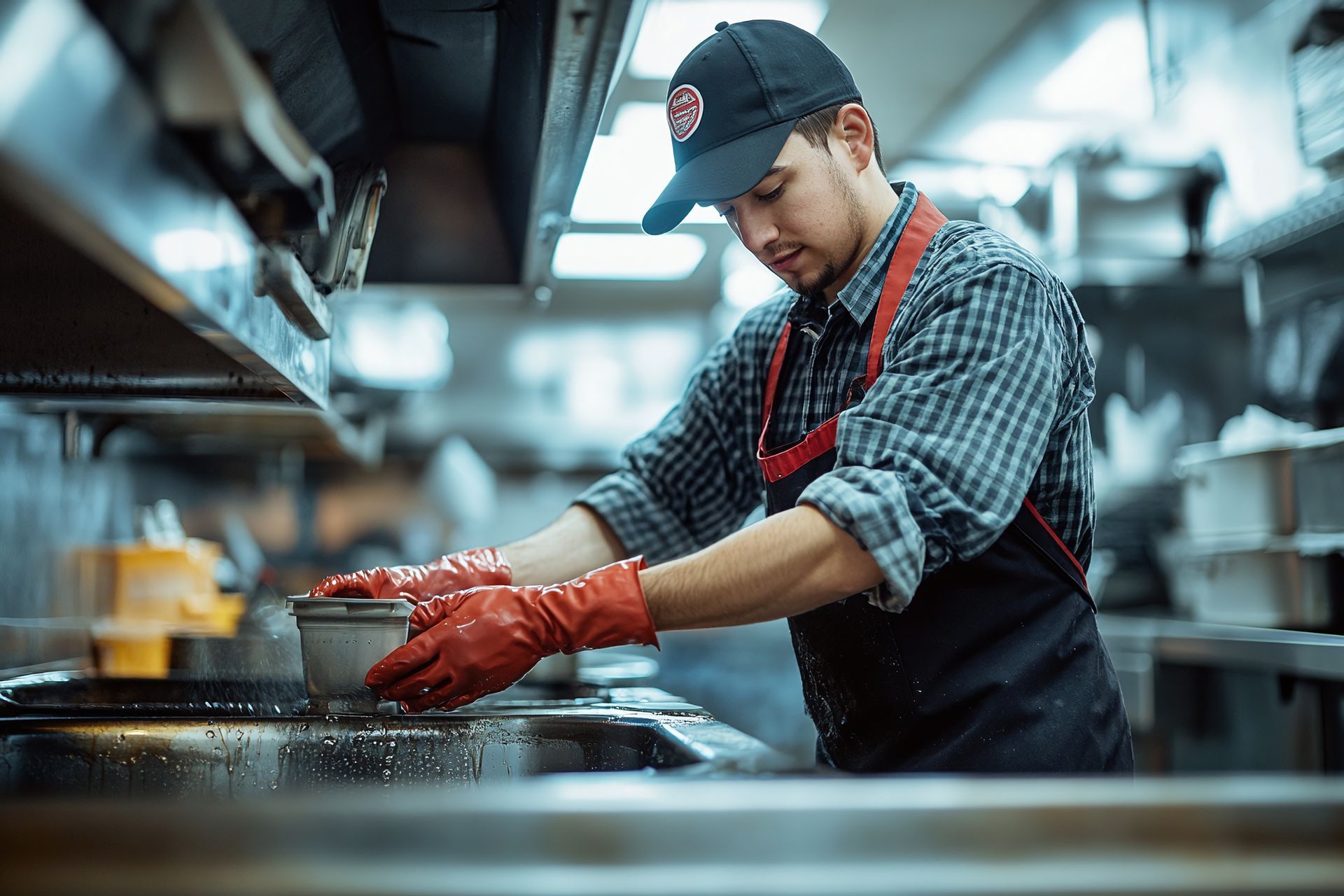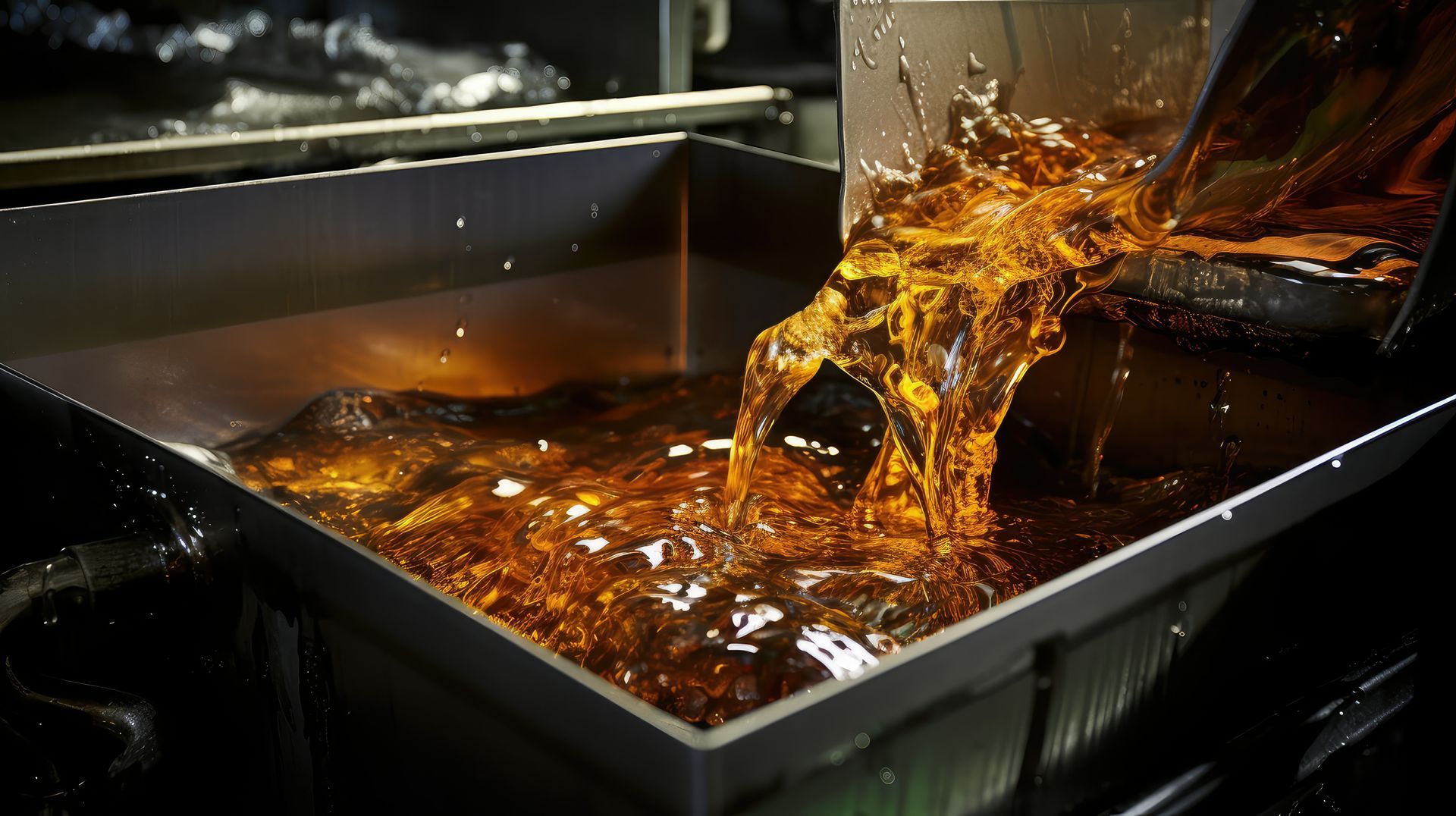How Grease Trap Maintenance Impacts Your Facility’s Health and Safety Standards

Maintaining a clean, functional kitchen is at the heart of running any successful food service operation. Health and safety standards are non-negotiable for restaurants, cafeterias and other commercial kitchens, and one often-overlooked component in meeting these standards is proper grease trap maintenance.
While it may not be as visible as spotless countertops or sanitized utensils, a well-maintained grease trap plays a critical role in providing a safe and sanitary environment for employees and customers alike.
The Role of Grease Traps in Your Facility
Grease traps are designed to intercept fats, oils and grease (FOG) before they enter your plumbing system. When left unchecked, FOG can cause clogs, backups and foul odors, disrupting operations and creating potential health hazards.
Regular grease trap cleaning helps these systems function effectively, preventing costly issues and maintaining compliance with local ordinances.
How Grease Trap Neglect Affects Health and Safety
Preventing Sewer Backups and Flooding
One of the most immediate dangers of a poor maintained grease trap is the risk of sewer backups. If FOG is allowed to overflow into sewer lines, it restricts water flow and can lead to overflows of wastewater into your kitchen or dining areas. This not only causes unpleasant odors but also creates a health hazard by introducing harmful bacteria and pathogens into your facility.
For food service businesses, a wastewater backup can lead to temporary closures and costly cleanup efforts—not to mention the damage it can do to your reputation.
Avoiding Contamination Risks
FOG buildup in grease traps can create a breeding ground for bacteria, mold and other contaminants. If grease traps overflow or emit foul odors, the risk of cross-contamination increases. Airborne bacteria can settle on food preparation surfaces, equipment and utensils, potentially leading to foodborne illnesses.
Regular grease trap cleaning eliminates these risks by removing accumulated FOG and preventing microbial growth.
Maintaining Air Quality
Full or poorly maintained grease traps often produce strong, unpleasant odors. These smells can permeate your facility, making it uncomfortable for both employees and customers. Worse, foul odors can deter patrons, leading to lost business and negative reviews.
By keeping grease traps clean, you ensure a more pleasant environment and uphold the standards of cleanliness expected by customers and health inspectors alike.
Meeting Health and Safety Regulations
Departments of watershed management often impose strict requirements for grease trap maintenance and perform regular, sometimes randomized, inspections to ensure grease traps are being properly cleaned and maintained by licensed grease trap servicing companies.
Many municipalities in Georgia require businesses to maintain records of grease trap cleanings and comply with a set cleaning schedule as well as maximum FOG limits (no more than 25-percent FOG by grease trap volume).
Failing to meet these requirements can result in fines, penalties and even forced closures.
The Importance of Employee and Customer Safety
Protecting Employees
Unmaintained grease traps can create unpleasant working conditions. Overflowing traps may also require staff to deal with messy and unsanitary cleanup, increasing their risk of exposure to harmful substances.
By keeping grease traps in good condition, you provide employees with a safer and more comfortable work environment, boosting morale and productivity.
Customer Satisfaction
Customers expect a clean and sanitary dining experience. Grease trap neglect, leading to foul smells, can quickly ruin their impression of your establishment. Even if your food is excellent, the perception of an unsanitary environment can deter repeat business and lead to negative reviews.
Investing in regular grease trap maintenance is an investment in your reputation and customers leave satisfied and eager to return.
Tips for Maintaining Health and Safety Standards
- Set a Maintenance Schedule
Determine the cleaning frequency required for your grease trap based on the volume of FOG your kitchen produces, the size of your grease trap and the cleaning intervals mandated by your local department of watershed management. High-volume kitchens may need cleanings every one to two months, while lower-volume establishments might manage with less frequent service. - Work With Licensed Professionals
Professional grease trap cleaning services ensure thorough maintenance and help you stay compliant with local regulations. Trained technicians have the expertise and equipment to remove FOG buildup safely and efficiently. - Train Staff on Proper FOG Disposal
Educate your team on best practices for food preparation and dishwashing to minimize the FOG that goes down drains. Simple steps like scraping plates into the trash and using sink strainers can reduce the amount of FOG that enters your grease trap, prolonging the time between cleanings. - Document Maintenance
Keep detailed records of grease trap cleanings to demonstrate compliance during inspections. These records also help you track service frequency and identify patterns in FOG production.
Safeguard Your Atlanta Business’s Health and Safety With Our Grease Trap Maintenance Services
At Southern Green Inc., we provide expert grease trap cleaning services tailored to your business's needs.
Get in touch with us today by calling (404) 419-6887 to schedule your grease trap cleaning and protect the health and safety of your facility!
Contact us Today for a FREE Quote
We are committed to making grease trap cleaning and fryer oil recycling as clean and easy as possible. If you’d like to learn more about our services or get a quote, give us a call at (404) 419-6887.



